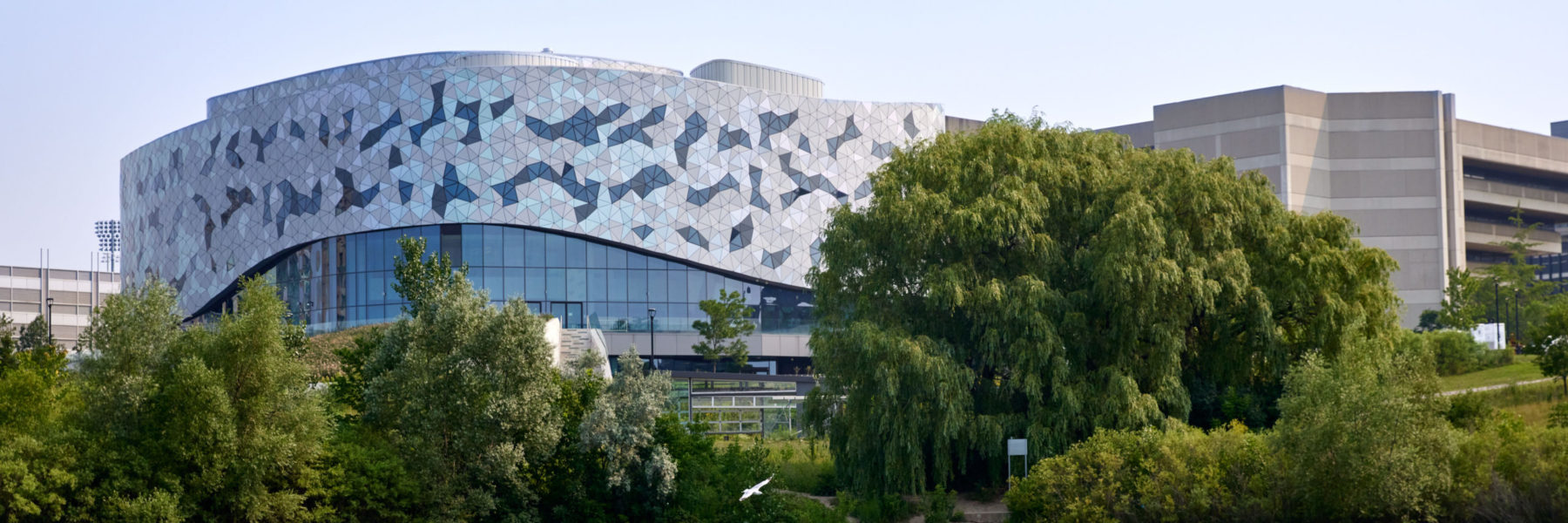
The Lassonde School of Engineering hosted the Canadian Engineering Education Association Conference, which took place from June 18 to 22. The conference theme was “Transforming Learners to Transform Our World.”
The event focused on growing a critical mass of professionals engaged in engineering and science education as well as fostering leadership committed to reimagining future engineers and scientists.
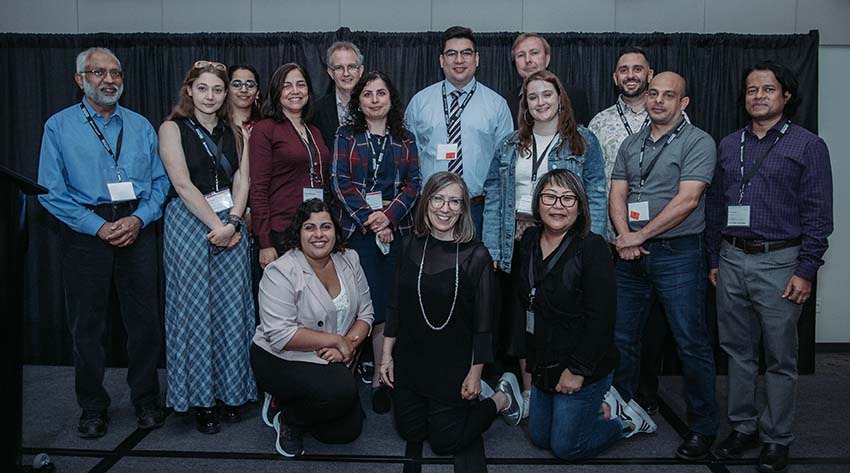
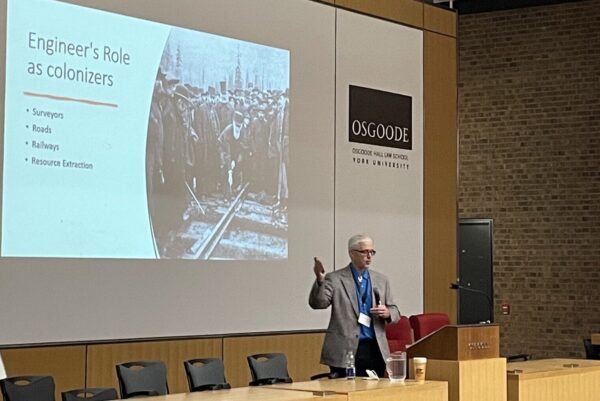
Prior to the formal conference presentations, conversations about engineering education were initiated through workshops hosted by the Institute for Engineering Teaching, Institute of Engineering Education Research, and Lassonde’s own k2i (kindergarten to industry) academy. Discussions in these workshops centred around creating disruptive change in Science, Technology, Engineering and Mathematics (STEM) education, exploring engineering design, decolonization of engineering, and equity, diversity, and inclusion initiatives.
The conference began with a keynote by Randy Herrmann, director of the Engineering Access Program at the University of Manitoba. Herrmann’s keynote challenged the pervasive myth of meritocracy and highlighted how engineers, as colonizers, have negatively impacted Indigenous communities. He provided tangible actions that engineers and engineering educators can take up to begin the process of decolonization. “Don’t do nothing,” said Herrmann and reiterated that even small actions in the right direction can create a snowball effect driving positive change.
One of the conference highlights was the "collaboratorium" sessions – facilitated round-table discussions structured in an "unconference" format.
“It has been three years since the CEEA community last met in person,” said Jeff Harris, organizing committee Chair and assistant professor at the Lassonde School of Engineering. “People have been craving conversations with each other, so we designed a conference experience that provides space for that engagement, both in structured and unstructured formats.”
Emerging from these conversations was the relaunch of a cross-Canada special interest group on first-year education and movement to create a new special interest group on Virtual Reality (VR) and Augmented Reality (AR) in engineering education.
The conference created a space for discussion around the future of engineering education and focused on how to address underrepresented groups in STEM and decolonization efforts in engineering. These topics culminated during the closing keynote titled “Why is EDI so important?” delivered by Eve Langelier, professor at the Université de Sherbrooke. Langelier is the Natural Sciences & Engineering Research Council of Canada (NSERC) Chair for Women in Science and Engineering (Québec).
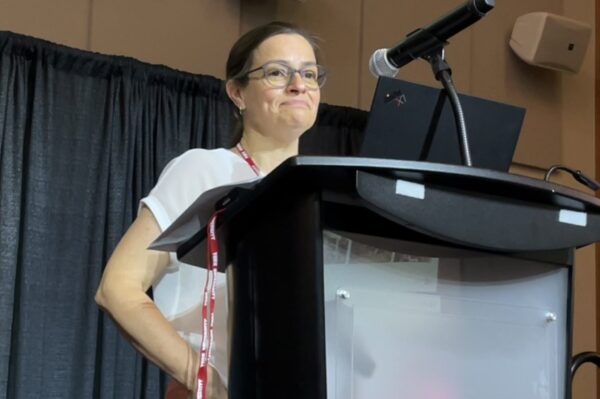
In her remarks, she stressed that the presence or absence of a group has a critical impact on engineering innovation and research. One example she provided illustrated the connection between automotive injury statistics to the absence of accurate female crash test dummies. Langelier highlighted barriers that keep women and marginalized people out of the engineering profession and encouraged attendees to consider how they can address this in their own roles.
To close the conference, University of Waikato Professor Maryam Moridnejad shared a traditional Māori song and reflected on her experiences as an immigrant to New Zealand.
“As an educator, when I was hired at my institution, I went through teaching training for two years that was compulsory,” said Moridnejad. “We had courses that were taught by Māori people to [educate us to] understand their culture and be able to help our Māori students.”
Herrmann, Langelier and Moridnejad’s contributions to the conference emphasized the need to reflect and act on transforming the future of engineering education. At the end of the conference, a grassroots group took up the calls to action in both keynotes. Sharing stories of student experiences from coast to coast to coast, they invited participants to form an advocacy movement to make the engineering Iron Ring Ceremony more inclusive and representative of engineering in Canada.
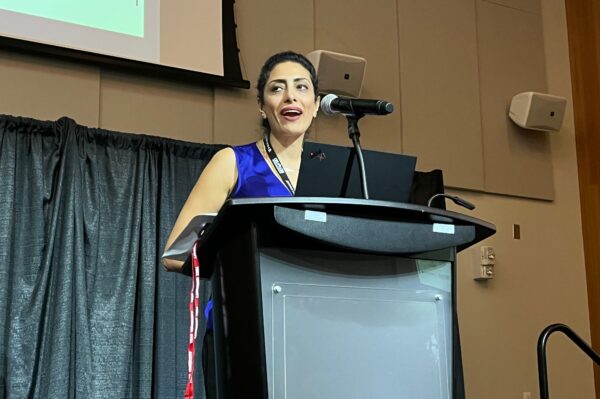
The Canadian Engineering Education Association Conference provided a valuable opportunity for Lassonde to help empower educators across Canada to create a more diverse and equitable engineering community. The conversations that took place over the five days helped spark momentum for transformation in engineering education.
“Truly transforming our world through the transformation of learners requires that all individuals have an opportunity for education,” said Jane Goodyer, dean of the Lassonde School of Engineering, during her conference opening remarks. “To reach larger groups of youth in their early years, to get them really excited about math, science and technology, we need to make systemic changes.”
The CEEA ACEG 2022 Conference was made possible thanks to the following sponsors: Engineers Canada, ITP Metrics, University of Manitoba, Quanser, The Schulich School of Engineering at the University of Calgary, Institute for Studies in Transdisciplinary Engineering Education & Practice and the Faculty of Applied Science & Engineering at the University of Toronto, the Faculty of Applied Science at the University of British Columbia, Faculty of Engineering and Architectural Science at the Toronto Metropolitan University, Faculty of Engineering at the University of Waterloo, Conestoga College, AIOLOS Engineering, Faculty of Engineering at McGill University and the Lassonde School of Engineering at York University.
